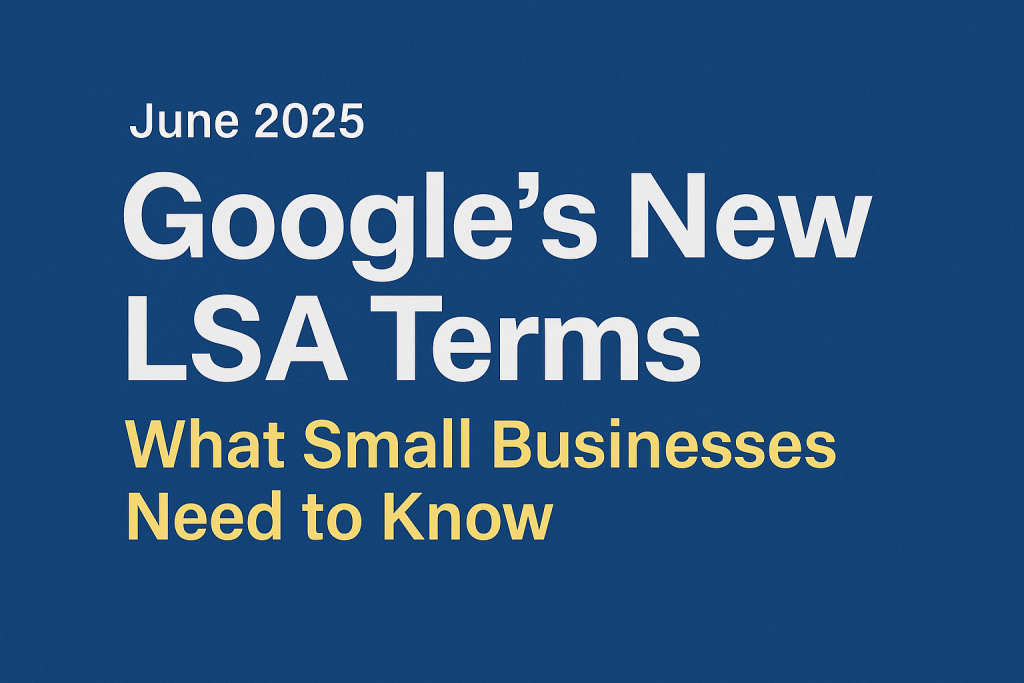
Google Can Now Record Your Leads & Edit Your Profile—Here’s What That Means
Google can now record your customer calls—and change your business details. Are you prepared?
Introduction
Google quietly rolled out major updates to its Local Services Ads (LSA) terms in June 2025, but the consequences are anything but quiet.
If you’re a small business relying on LSA to generate leads, here’s what changed:
- Google can now record and use call and message data for “quality” and “training” purposes
- It reserves the right to edit or supplement your business profile—including hours, service descriptions, and offers
- You must accept these new terms to keep your LSA ads running
Yet, very few SMBs realize the potential privacy, messaging, and legal implications—especially businesses in regulated or high-trust fields like law, medspa, and financial services.
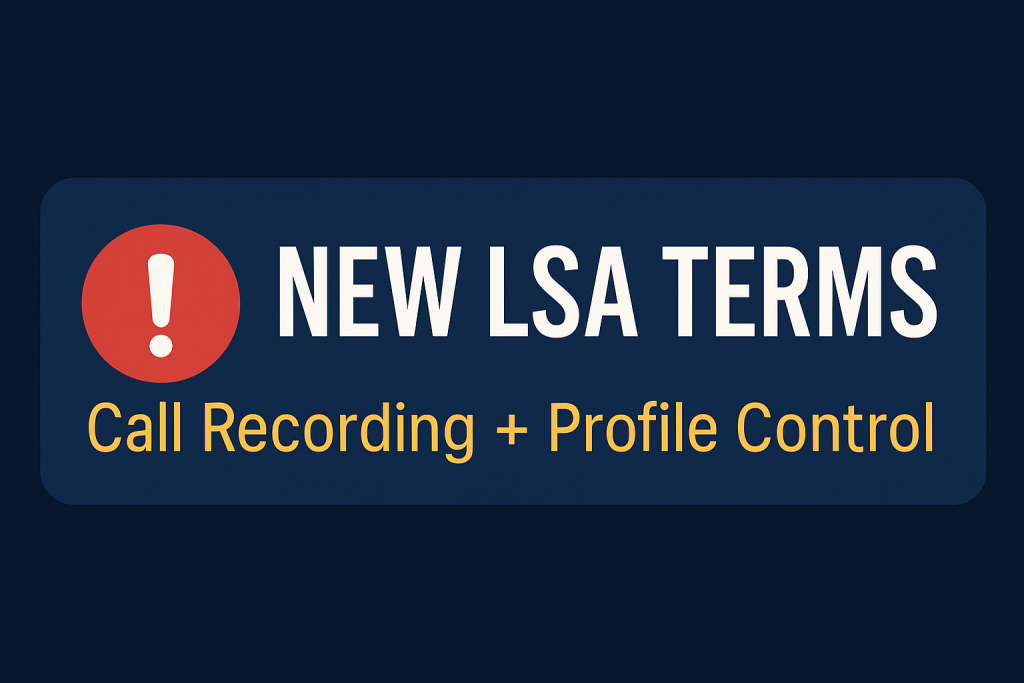
What’s Changing — June 2025 LSA Updates
Google’s updated Local Services Ads terms came into effect on June 5, 2025. Acceptance is required to continue running your ads.
Here are the key changes:
- Call & Message Recording: Google now has permission to record, transcribe, and use voice and chat interactions with potential leads. These recordings may be used for training, moderation, or quality purposes.
- Profile Control: Google can modify your profile information. This includes:
- Updating your business hours
- Adding or editing descriptions of your services
- Adjusting pricing, discounts, or offers
- Linking to your website or suggesting related services
- Global License to Use Content: By participating, you grant Google a perpetual, worldwide license to use your content—including profile text, photos, branding elements, and customer feedback.
- Automated Modifications: Google can now proactively alter your LSA profile “to improve clarity, accuracy, or relevance.” This happens without prior approval.
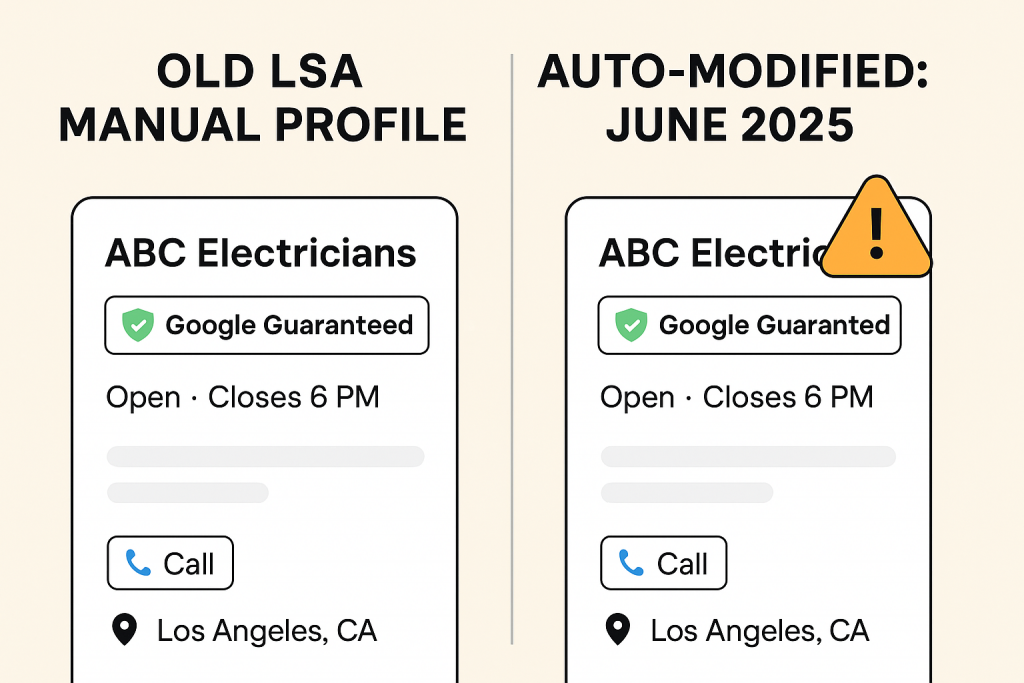
Privacy & Compliance Risks Across Industries
For many small businesses, especially those in regulated industries, these terms introduce real legal and ethical challenges.
Call & Message Recording
- If your business handles sensitive, confidential, or privileged information, recorded calls could present legal exposure.
- Examples: client intake for law firms, medical consults for medspas, or financial services inquiries.
- Even if Google uses recordings for quality purposes, you are still accountable for what is said and stored.
AI Analysis of Lead Interactions
- Google may use transcripts from these calls to train its models or optimize ad delivery.
- This introduces a gray area around how user data is repurposed—especially if personal identifiers are involved.
Modification of Business Profiles
- Your hours, services, or pricing could be changed without notice.
- This is especially dangerous for:
- Plumbers or electricians who offer emergency services
- Law firms where misrepresented practice areas could violate bar rules
- Medspas offering treatments that require disclaimers
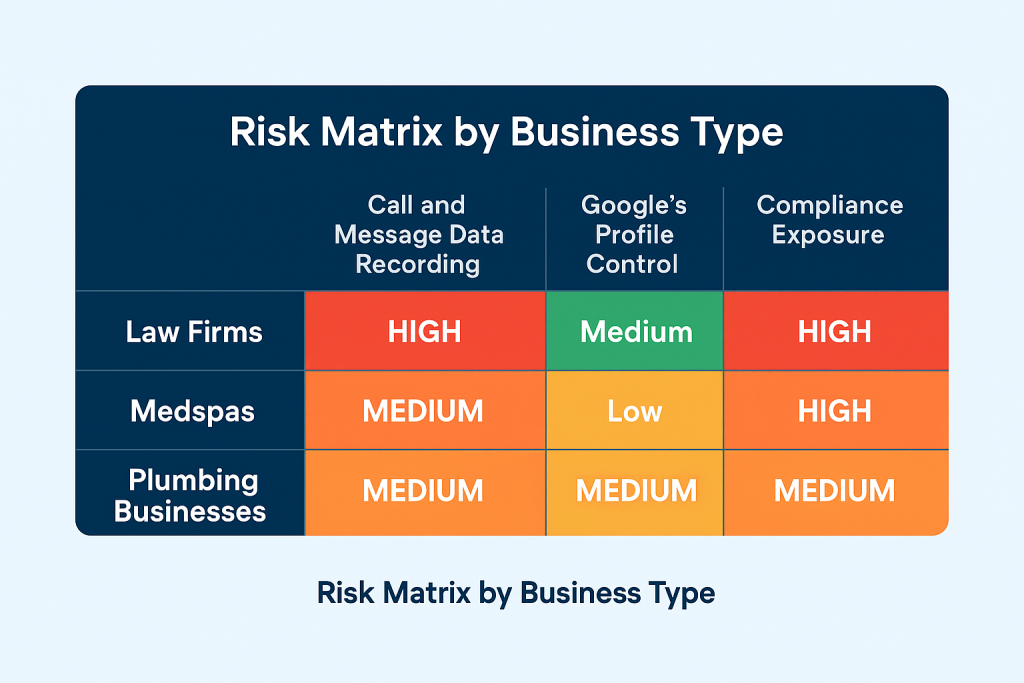
Breaking It Down by Business Type
Not every industry is affected equally. Here’s how these changes apply to different types of local businesses:
Law Firms
- Risks: Client confidentiality, attorney-client privilege, and bar rule violations if calls are recorded.
- Recommendation: Use disclaimers at the start of LSA calls and reroute sensitive discussions to secure platforms.
Medspas & Clinics
- Risks: Collection of health-related information could conflict with HIPAA-like obligations, even if unintentional.
- Recommendation: Avoid medical discussions during LSA call intakes; clarify that no diagnoses are given over the phone.
Home Services (Plumbing, HVAC, Electricians)
- Risks: Google modifying emergency availability or pricing info could mislead customers and affect liability.
- Recommendation: Check profiles regularly for unauthorized changes; log all quote details internally.
Financial Services
- Risks: Intake recordings may capture sensitive financial or identification data.
- Recommendation: Route leads to secure intake forms or encrypted chat instead of full conversations over the phone.
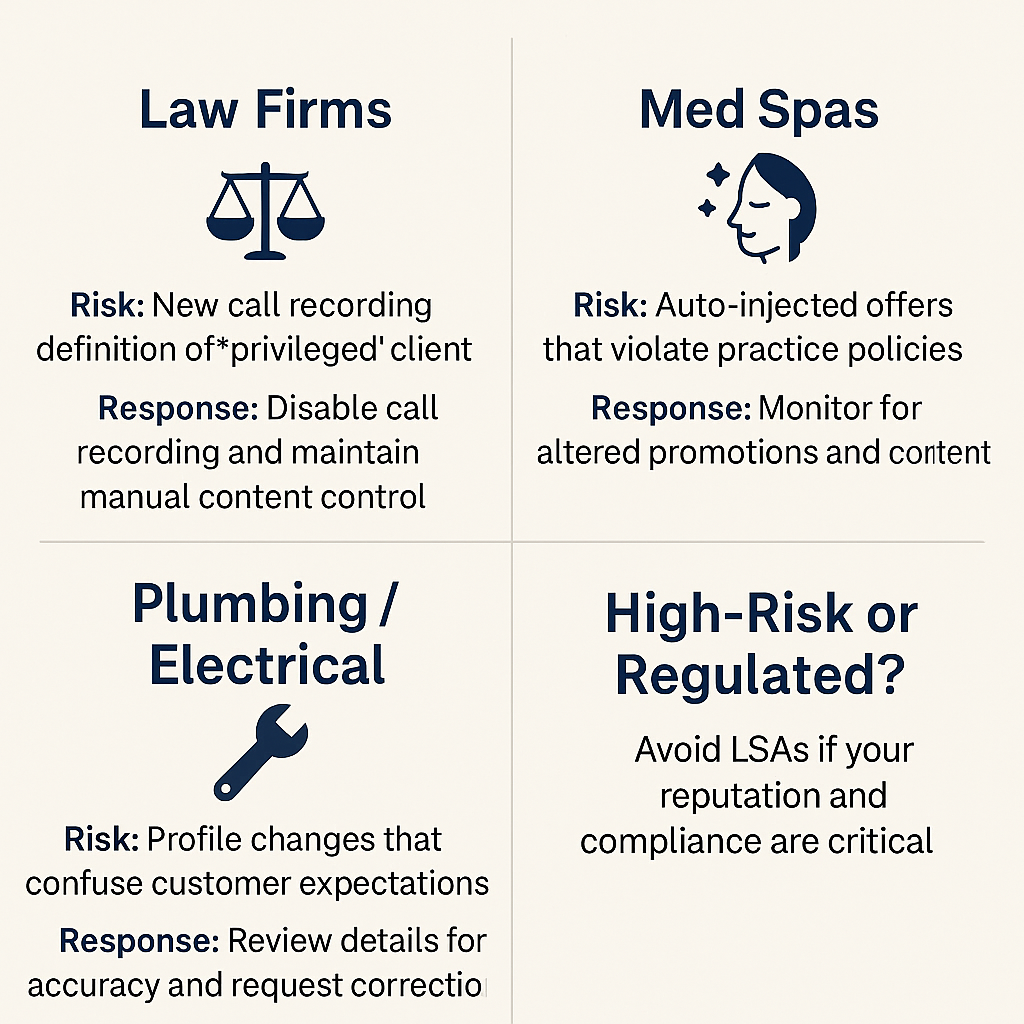
Essential Action Steps for SMBs
To minimize risk and maintain control, take the following proactive steps immediately:
- Review Your Current LSA Profile
- Look for any recent changes to hours, services, or pricing
- Keep screenshots of the original setup for reference
- Add Call Disclaimers
- Use a pre-recorded message: “This call may be recorded by third parties for quality assurance.”
- Train staff to avoid confidential discussions over LSA calls
- Audit Third-Party Integrations
- If you use call tracking, CRM, or scheduling platforms, verify how they handle and store Google LSA data
- Update your privacy policy accordingly
- Monitor Profile Edits Weekly
- Set a recurring task to check your LSA profile and flag any Google-initiated changes
- Document everything in case of disputes
- Consider Opting Out of High-Risk Use Cases
- For sensitive services (legal, medical, financial), consider pausing LSA if compliance cannot be guaranteed
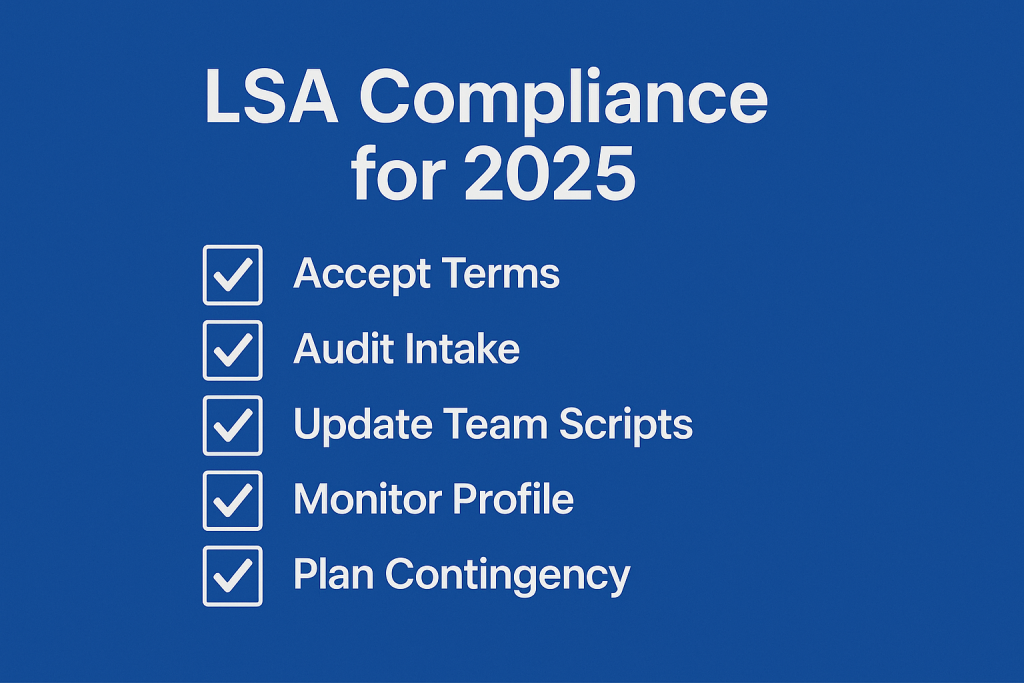
Final Thoughts
These new LSA terms represent a pivotal shift in how Google manages small business advertising. The platform now controls more of the lead experience—both technically and legally.
While the updates may enhance lead quality and automation, they also increase your exposure. The businesses that will thrive are the ones that:
- Understand what’s changing
- Proactively manage their data and messaging
- Hold Google accountable for accuracy and fairness
Stay informed. Stay compliant. Stay in control.

